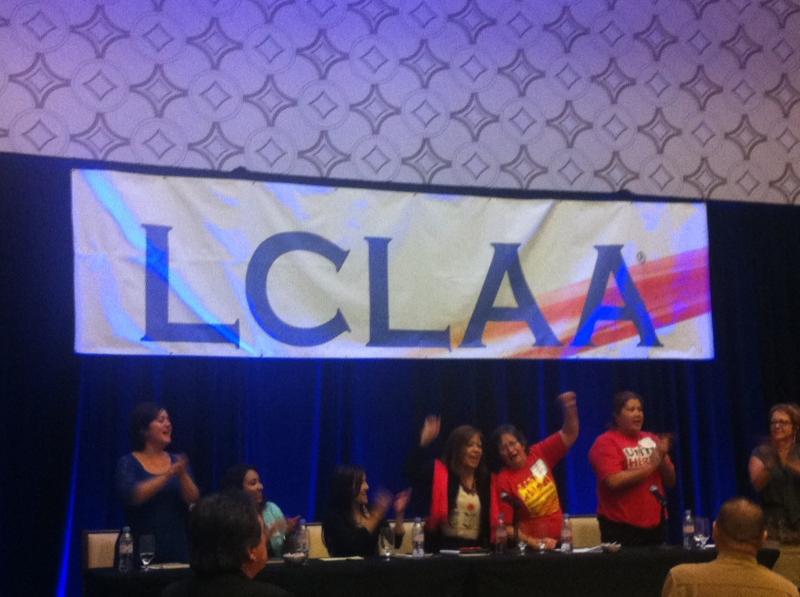Labor Summit: Minority Distaste With Economic Environment

The Secretary Treasurer of the largest trade federation in the United States criticized the U.S. economy this Friday at the annual Latino Labor Summit in downtown Los Angeles, calling it "fundamentally out of kilter."
Elizabeth Shuler, who works for AFL-CIO, was one of the many speakers at the summit hosted by the Labor Council for Latin American Advancement (LCLAA) to discuss issues impacting Latino workers.
Many of them reiterated the importance of coming months in the advocacy of workers rights, before midterm elections redirect much of the news's attention in 2014. Speakers called for fundamental reforms across the board both economically and socially to raise Latino laborers above their disadvantaged situation and arm them with the tools to successfully ascend to the middle class.
A variety of workers, including those here legally and illegally, presented their plight to the audience, detailing struggles of health and family, problems compounded by attempting to live on a minimum wage salary. Great stress was also put on ensuring that any legislative action that took place also stretched to both undocumented laborers and guest workers in the Latino community and provided them with a path to citizenship. Often, panelists stressed, these workers had their non citizenship standing used as leverage against them in professional settings.
It's rare to be in an environment where janitors, machinists, maids and a long list of other day laborers are praised for their toil. So often these workers are glossed over, at times considered more a part of society's environment than its population. Though always present in the minds of many Latino workers, issues discussed such as the national minimum wage, immigration reform and minority empowerment were especially salient in the eyes of the general population due to mass strikes that occurred in the past days and weeks around the United States.
Only about a hundred people sat in the convention room at any one time, mostly labor leaders, community organizers and advocates. And almost all were Latino.
But their collective mood reflected the emotions of millions of laborers around the country: anxious, energetic and confident. At times, the summit felt more like a rally than a convention. Speakers repeated call and response chants to the crowd who sang their collective reply back with fervor and spirit.
"No Retreat," a speaker would shout, and the crowd came back with a rousing "No Surrender," despite their relatively small numbers. Spanish flashed occasionally into speeches, at times a reminder of their heritage and at others a sign of camaraderie between them and the fellow Latinos in attendance.
Despite the need to appeal to Washington to create laws that would benefit Latinos and other laborers, the goals of the summit still felt very much like that of a community movement.
"Screw the institution, what matters is the movement of the people," Shuler said as she scanned the crowd, speaking slowly, almost urging the audience to action with her eyes.
And there had been action. If nothing else, the recent acts of civil disobedience spoke to the increased momentum within the Latino cause and attempted to draw Congress's eye toward their goals, a difficult proposal considering other current more time sensitive issues such as Syria.
But all the momentum and community organization would mean nothing without the strong support of Latino voters, who were notoriously absent from the polls. In the 2012 presidential election, despite the Latino vote playing an important role in President Obama's re-election, only 48 percent of eligible Latino voters showed up to the polls, a rate much lower than either non-Hispanic white or black voters.
Guadalupe Palma, a resident of the Inland Empire and deputy chair of Warehouse Workers United, reiterated a Pew Research study which listed the Hispanic population in the Inland Empire as the fourth largest in the country, larger than in Chicago. She also admonished the fact that civic and community involvement within the Latino community was not as strong as it could be.
Further information can be found about the Labor Council for Latin American Advancement here.
Contact staff reporter Cameron Beaulieu here.



